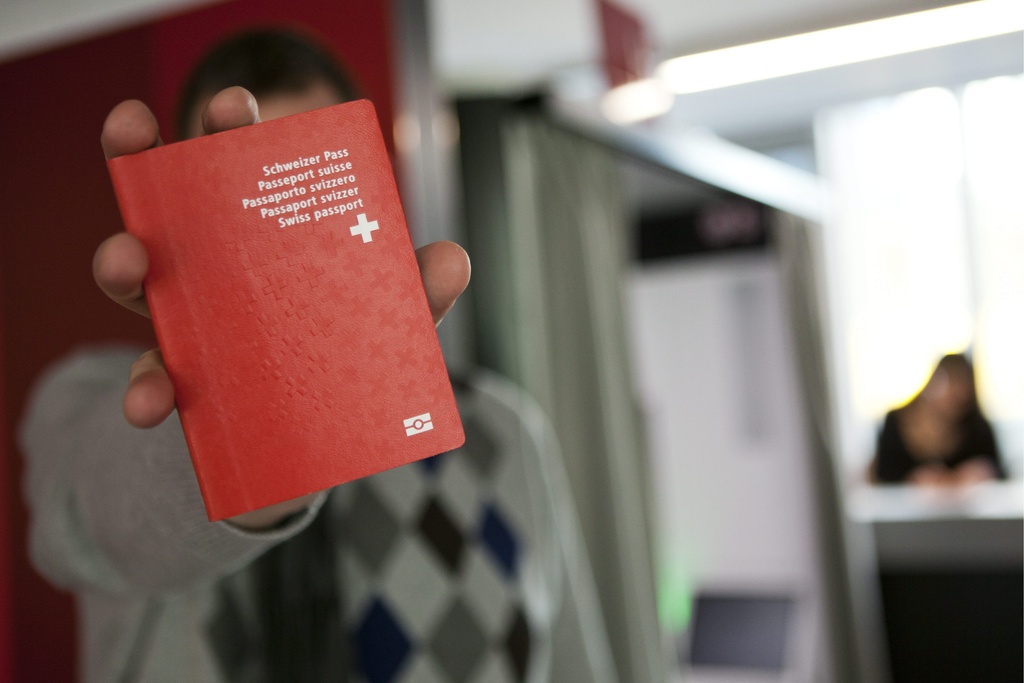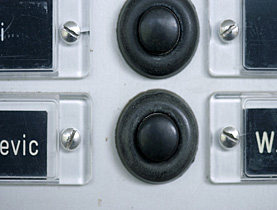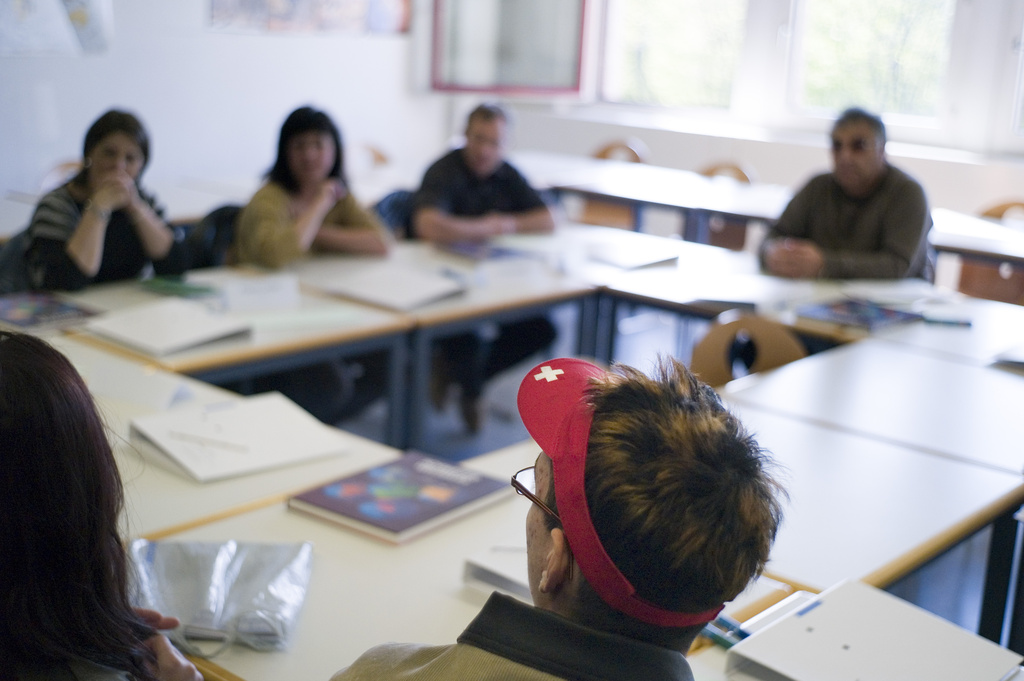Bachmann puts spotlight on Swiss citizenship

US congresswoman Michele Bachmann recently became a Swiss citizen thanks to her husband, who is of Swiss parentage from canton Thurgau. So just how easy is it for foreigners to gain Swiss citizenship?
News emerged this week that Marcus Bachmann, the Republican’s husband since 1978, was eligible for Swiss citizenship due to his parents’ nationality. Michele and Marcus Bachmann finalised a naturalisation process on March 19.
“My husband is a 100 per cent Swiss, and his parents were raised in Switzerland. They were married there, they came to the United States, they bought a farm in Wisconsin and raised their three sons there,” the Minnesota congresswoman told Swiss national television in Washington on Tuesday while with a group of Swiss parliamentarians (see link).
According to the Politico online news site, Bachmann’s three youngest children are also now Swiss citizens and her two older children are eligible to apply for a fast-track citizenship process.
The congresswoman’s office confirmed she had received Swiss citizenship and attributed the decision to her children.
“Congresswoman Bachmann’s husband is of Swiss descent, so she has been eligible for dual-citizenship since they got married in 1978. However, recently some of their children wanted to exercise their eligibility for dual-citizenship so they went through the process as a family,” said Bachmann spokesperson Becky Rogness.
Automatic right
Andrea von Arx-Koprio from Thurgau’s civil status department confirmed Marcus Bachmann was indeed a citizen of Wigoltingen, in canton Thurgau.
Under Swiss law, which changed in 1992, the wife of a Swiss citizen must actively apply to become Swiss.
“But because they got married earlier in 1978 she has the automatic right to Swiss nationality,” von Arx-Koprio told swissinfo.ch.
Nowadays, someone living outside Switzerland applying for naturalisation has to have been married to and lived with a Swiss citizen for at least six years and have “close ties” to Switzerland.
“They have to show that they have a relationship with Switzerland, that they travel there regularly, have friends and family based there,” Helen Hauffe, a naturalisation official from Thurgau, said.
“In general, those applying from abroad have to go to a consulate or embassy for an interview where they check things like whether they can speak one of the national languages, French, German or Italian.”
Automatic citizenship for children through their father would apply to those under 22 and anyone over that age would have to apply actively for citizenship, she added.
Three paths
To become Swiss, there are basically three paths: through birth, marriage (not automatic) or naturalisation.
Unlike in the United States, Switzerland does not grant a child citizenship for being born on Swiss soil. A person is automatically Swiss if he or she is the child of married parents, at least one of whom is Swiss.
The child of an unmarried Swiss woman is also automatically Swiss. Should an unmarried father be Swiss (and the mother a foreigner), the child can have Swiss citizenship as long as the father acknowledges paternity before the child turns legal age.
Switzerland allows citizens to hold multiple nationalities, so whether a naturalised person loses previous citizenship depends entirely upon the other country in question.
Foreigners with no direct blood ties to Switzerland through either birth or marriage must live in the country for at least 12 years before they can apply for citizenship. The Federal Migration Office will green light an applicant’s request to begin the naturalisation process but the cantons and municipalities have their say too.
Foreigners married to a Swiss citizen or children of one Swiss parent (who do not yet have Swiss citizenship) living in Switzerland are eligible to apply for fast-track citizenship. The person must be well-integrated, law abiding and not endanger Switzerland’s external or internal security. Cantons and communes have no additional requirements that must be met but do reserve the right of appeal.
In this case, foreign spouses must have been married to a Swiss for at least three years and lived in Switzerland for a total of five years, including the year immediately prior to application.
Swiss citizenship laws have undergone dramatic changes in the past 20 years. Between 1992 and 2010, the number of people issued a Swiss passport has nearly quadrupled.
Every year, around 40,000 people become Swiss, three-quarters of whom come from Europe; and five per cent from America. Yet only three out of 100 foreigners living in Switzerland have been granted Swiss citizenship – a small percentage compared with other countries.
Michele Bachmann is one of the most prominent members of the Tea Party movement, who unsuccessfully sought the Republican presidential nomination this year.
Earlier this month she endorsed her former rival Mitt Romney in his bid for the presidency, calling him “the last chance we have to keep America from going … over a cliff”.
The outspoken politician has recently been leading protests by Tea Party activists and others against the government healthcare bill.
Last year she was questioned over whether the Christian counselling business of her husband provided therapies that attempted to “cure” gays and lesbians.
In 2008, on the closing fortnight of elections, Bachmann said she was “deeply concerned that Barack Obama might be anti-American”.

In compliance with the JTI standards
More: SWI swissinfo.ch certified by the Journalism Trust Initiative













You can find an overview of ongoing debates with our journalists here . Please join us!
If you want to start a conversation about a topic raised in this article or want to report factual errors, email us at english@swissinfo.ch.